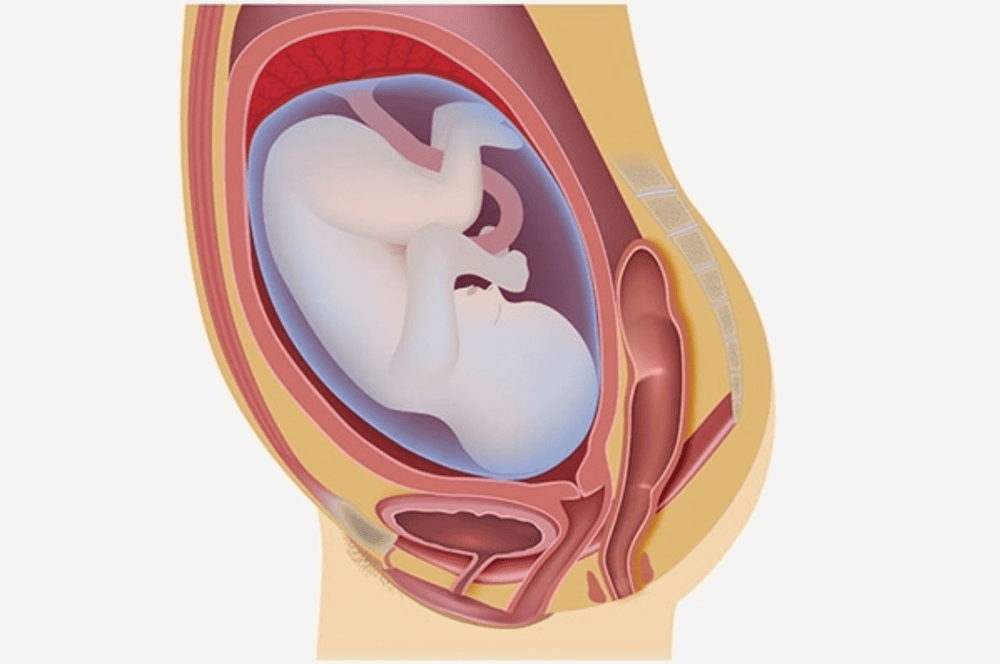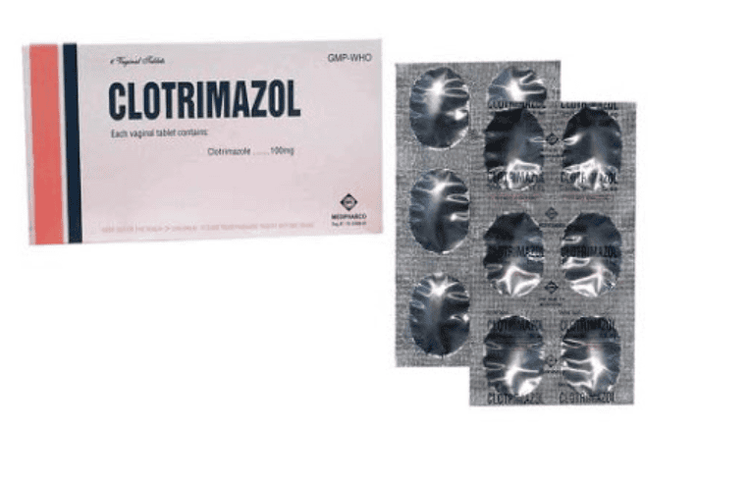This is an automatically translated article.
The article was professionally consulted by BSCK II Pham Thi Tuyet Mai - Department of Obstetrics and Gynecology - Vinmec Hai Phong International General Hospital.Due to hormonal changes during pregnancy, pregnant women can suffer from gynecological inflammatory diseases, so what is the medicine to treat gynecological inflammation during pregnancy?
1. Be careful with gynecological infections during pregnancy
Pregnancy is one of the most sensitive times for vaginal infections. This happens due to changes in hormone levels in the body. The increase in the hormones Estrogen and Progesterone in pregnant women will lead to an abnormality in pH levels in the intimate area. Besides, Progesterone also inhibits neutrophils against Candida fungi. Not only that, but estrogen also contributes to breaking down the structure of vaginal epithelial cells, thereby reducing immunoglobulins in vaginal fluid.All of the above factors will create an extremely favorable environment for bacteria and parasitic fungi to grow, leading to gynecological diseases in pregnant women, especially vaginitis. The most obvious signs when pregnant women are infected:
Feeling burning, itching and discomfort in the intimate area. Abdominal pain, especially in the lower abdomen. In more severe cases, bacteria can attack the worm and cause inflammation of the membranes, leading to an increased risk of premature birth, transmission of fungi and pathogens to the fetus.

2. Using gynecological suppositories during pregnancy is dangerous to the fetus?
In fact, many pregnant women wonder about this problem, because they often think that using drugs during pregnancy is a taboo. No, it depends on the doctor who prescribes it.Currently, most of the suppositories to treat vaginitis have a local effect (only affecting the female vaginal area, not other areas). Therefore, the use of drugs to treat gynecological inflammation during pregnancy is safe for pregnant women and fetuses.
In addition, when visiting hospitals - medical facilities, doctors will prescribe appropriate drugs based on the level of infection. If you refuse treatment, gynecological inflammation will progress more seriously and cause a dangerous condition for the fetus. However, you should also not arbitrarily buy drugs to place gynecological inflammation without a prescription from a doctor because each person's condition is different.
Trắc nghiệm: Bạn có hiểu đúng về dấu hiệu mang thai sớm?
Các dấu hiệu mang thai sớm không phải chỉ mỗi trễ kinh mà còn có rất nhiều dấu hiệu khác như xuất huyết âm đạo, ngực căng tức,… Điểm xem bạn biết được bao nhiêu dấu hiệu mang thai sớm thông qua bài trắc nghiệm này nhé!
3. Which drug should be chosen to treat gynecological infections during pregnancy?
The aim of treating gynecological inflammation during pregnancy is to minimize the symptoms of the disease. Some of the following drug groups will provide good support for gynecological infections and vaginitis during pregnancy such as:3.1. Imidazol group This is the group of drugs with local action (local action) that is recommended first. The drugs of the Imidazol group are usually in dosage form, with high safety. Each course of treatment with this group of drugs usually lasts from 7-14 days. This group of drugs includes:
Miconazole Miconazole is classified in category C in the pregnancy risk classification published by the US Food and Drug Administration, very poorly absorbed and affects the whole body. Accordingly, the drug has undergone clinical trials in pregnant women in the first 3 months of pregnancy and has no harmful effects on the mother or the fetus.
Miconazole in the form of a 100mg vaginal tablet or a 2% vaginal cream, usually chosen for a 7-day course of treatment.
Clotrimazol Clotrimazol is classified as Category B in the pregnancy risk category. Accordingly, Clotrimazol does not harm the mother or fetus during the second and third trimesters. However, it should be noted that at present, there are not enough data to classify the risk in the first trimester of pregnancy.
Clotrimazol is available in the form of 2% cream and is used within the indicated 7 days. In case of recurrent infections will be indicated further, lasting up to 14 days.

However, an analysis of 1079 women in Northern Denmark who had a stillbirth or were pregnant for 20 weeks showed that short-term use during the first trimester of pregnancy was not associated with malformations. natural . On the other hand, in this large national cohort study, patients using fluconazole had a 48% higher risk of spontaneous abortion.
Currently, the FDA has issued a warning regarding the safety of pregnant women - fetuses when prescribing oral fluconazole to treat gynecological infections during pregnancy.
3.3. Vageston Vageston has the main ingredient of the natural hormone progesterone, often used to prevent labor contractions. Therefore, this is a very safe medicine for gynecological inflammation during pregnancy.
In general, each group of drugs to treat gynecological infections during pregnancy will have different properties and ingredients. Depending on your condition, doctors will have separate indications. For safety reasons, you should be cautious and avoid buying prescription drugs on your own.

Hysterectomy, hymenectomy Surgery for uterine fibroids, cervical cancer Cervical cancer vaccination Cervical cancer early detection Cervical electrocautery Examination and treatment Endocrine
Please dial HOTLINE for more information or register for an appointment HERE. Download MyVinmec app to make appointments faster and to manage your bookings easily.














